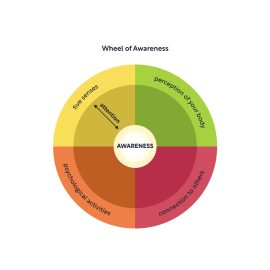

This article is an excerpt from the Shortform book guide to "Chop Wood Carry Water" by Joshua Medcalf. Shortform has the world's best summaries and analyses of books you should be reading.
Like this article? Sign up for a free trial here.
Do you manage to stay optimistic when life gets tough? How can you build and maintain a positive outlook that helps you achieve your goals?
In Chop Wood Carry Water, Joshua Medcalf asserts that a positive attitude is a fundamental skill that can transform your approach to life’s challenges. From managing negative thoughts to building meaningful relationships, there are practical steps you can take to cultivate optimism.
Keep reading for Medcalf’s advice on how to develop a positive attitude.
How to Develop a Positive Attitude
Medcalf emphasizes that a positive attitude is key to choosing and achieving goals that lead to a fulfilling life. This is because a positive mindset helps you see opportunities where others might see obstacles, stay resilient in the face of challenges, and maintain the motivation necessary for long-term success.
Medcalf’s advice on how to develop a positive attitude is this: manage your thoughts, recognize your worth, define your priorities, and build a supportive network. Let’s explore each in more detail.
(Shortform note: Psychologists echo the idea that feeling positive is key to choosing fulfilling goals. One idea underlies this argument: All behavior is driven by the need to fulfill one of two motivation types—intrinsic (motivation that comes from within) or extrinsic (motivation that comes from your environment). When you have a positive attitude, you’re more likely to choose satisfying, intrinsically motivating goals because you prioritize your well-being, accept your needs, and feel comfortable expressing them. On the other hand, when you have a negative attitude, you’re more likely to choose less satisfying, extrinsically motivated goals because you ignore your needs in favor of seeking acceptance from others and eliciting external rewards.)
Method 1) Manage Your Thoughts
First, replace self-defeating thoughts with positive, constructive ones. Medcalf highlights that your internal monologue impacts your attitude and approach to achieving goals. It acts like a self-fulfilling prophecy: Telling yourself you’ll fail influences you to underperform or give up. On the other hand, telling yourself you can succeed boosts your confidence and motivation, inspiring you to take constructive actions that yield positive results.
For example, when preparing for a public speaking engagement, instead of thinking, “I’ll probably mess up,” tell yourself, “I’ve prepared thoroughly and have valuable insights to share.” This shift in self-talk may help you feel more comfortable, enabling you to engage your audience more effectively.
(Shortform note: Researchers back up the idea that thoughts become self-fulfilling prophecies. They suggest two strategies to keep your thoughts positive and constructive. First, pay attention to the language you use—specifically, replace terms like “I can’t” or “I don’t know how” with empowering terms such as “I can” or “I’ll find a way.” Second, behave in ways that reflect how you want to feel. For example, if you want to feel confident, carry your head high, make eye contact with others, and speak clearly and assertively. This will help you build genuine confidence over time while also encouraging positive responses from others.)
Method 2) Recognize Your Worth
Second, rather than tying your self-worth to your accomplishments, how you compare to others, or others’ opinions of you, value yourself for who you are. According to Medcalf, understanding that you’re already worthy, regardless of what you achieve or how others perceive you, frees you from feelings of inadequacy. It does this by empowering you to make decisions that are right for you, rather than choices aimed at pleasing others or achieving arbitrary benchmarks.
For example, if you’re a teacher, instead of basing your worth on how your students’ test scores compare to national averages, appreciate your compassion and dedication to inspiring young minds. This perspective might lead you to prioritize holistic student development over standardized test performance, which is valuable even if it goes against conventional practices.
| How Low Self-Worth Exacerbates Feelings of Inadequacy Clinical psychologist Adia Gooden clarifies that your self-worth is a measure of how entitled you feel to “take up space” in the world. She echoes Medcalf’s advice to value yourself as you are, stating that feeling like you need to change something about yourself before you can feel “worthy” is an exercise in futility. Constantly striving to alter yourself to attain worthiness creates a never-ending cycle of dissatisfaction, as you’ll always find something new to “fix” or improve about yourself. Further, the Tao Te Ching clarifies how low self-worth creates feelings of inadequacy. When you don’t know your value, you’re more likely to choose status-based (extrinsically motivated) goals, such as wealth and power, to prove your worth to others. However, status-based goals have no upper limit and are therefore impossible to “achieve”—they drive you to always seek more instead of feeling happy with who you are and what you have. Your desire to fulfill these never-ending goals—and receive the validation you crave—consumes you, overshadowing your desire to feel happy in the present. As a result, you direct all your energy and focus away from safeguarding your current well-being, in favor of chasing the possibility of future happiness. Gooden suggests three strategies to help overcome feelings of inadequacy and cultivate a strong sense of self-worth: 1) Forgive yourself for past mistakes: This allows you to release negative self-judgment and move forward with a cleaner emotional slate and a more positive self-image. 2) Accept yourself as you are, including your flaws and imperfections: This helps you recognize your inherent worth and reduces the need for external validation or constant self-improvement to feel valuable. 3) Treat yourself with kindness: This reduces self-criticism and promotes a more nurturing relationship with yourself. |
Method 3) Define Your Priorities
Third, reflect on what you care about before making decisions or pursuing goals. Medcalf explains that having clear priorities contributes to a more positive attitude by reducing internal conflict. Clear priorities provide a sense of direction that guides your actions, preventing you from making choices that are counterproductive to what you really want—and that therefore engender feelings of guilt or regret.
For example, reminding yourself how much you value academic success helps you overcome the temptation to go out for drinks instead of studying for an upcoming exam. As a result, you have more time to prepare and avoid the stress and self-doubt that would have come from neglecting your studies.
(Shortform note: Stephen R. Covey (The 7 Habits of Highly Effective People) offers a practical way to define your priorities: Picture yourself at the end of your career or life, looking back at your proudest moments—focus on what you want to achieve in your various roles (parent, spouse, friend, colleague, and so on). This process helps define who you want to be and what you want to achieve in each area of your life, and it encourages you to imagine how life would look after successfully integrating all your priorities.)
Method 4) Build a Supportive Network
Fourth, surround yourself with people who encourage your growth. According to Medcalf, your social circle impacts your ability to maintain a positive attitude and live according to your priorities. He explains that the people in your life can either support and reinforce your goals or inadvertently undermine your efforts. Therefore, he recommends being intentional about your relationships, seeking out those who share or respect your priorities.
For example, if you’re trying to adopt healthier habits, spending time with friends who prioritize fitness and nutrition will make the process easier, since their good habits will help you stay committed to your goal. On the other hand, socializing with friends who pressure you to indulge in unhealthy foods or skip workouts may make it difficult to stick to your new habits.
(Shortform note: Steven Kotler (The Art of Impossible) offers an additional insight into how spending time with people who share or respect your priorities encourages your growth: It garners positive feedback and social support. This positive attention triggers the release of pleasurable reward neurochemicals such as dopamine and oxytocin. This neurochemical release creates feelings of pleasure that make your goals feel more meaningful and boost your motivation to continue working toward them.)

———End of Preview———
Like what you just read? Read the rest of the world's best book summary and analysis of Joshua Medcalf's "Chop Wood Carry Water" at Shortform.
Here's what you'll find in our full Chop Wood Carry Water summary:
- The impact of a positive mindset on your goals
- How to stay focused on the process, not the result
- Why success is more than just the finish line






